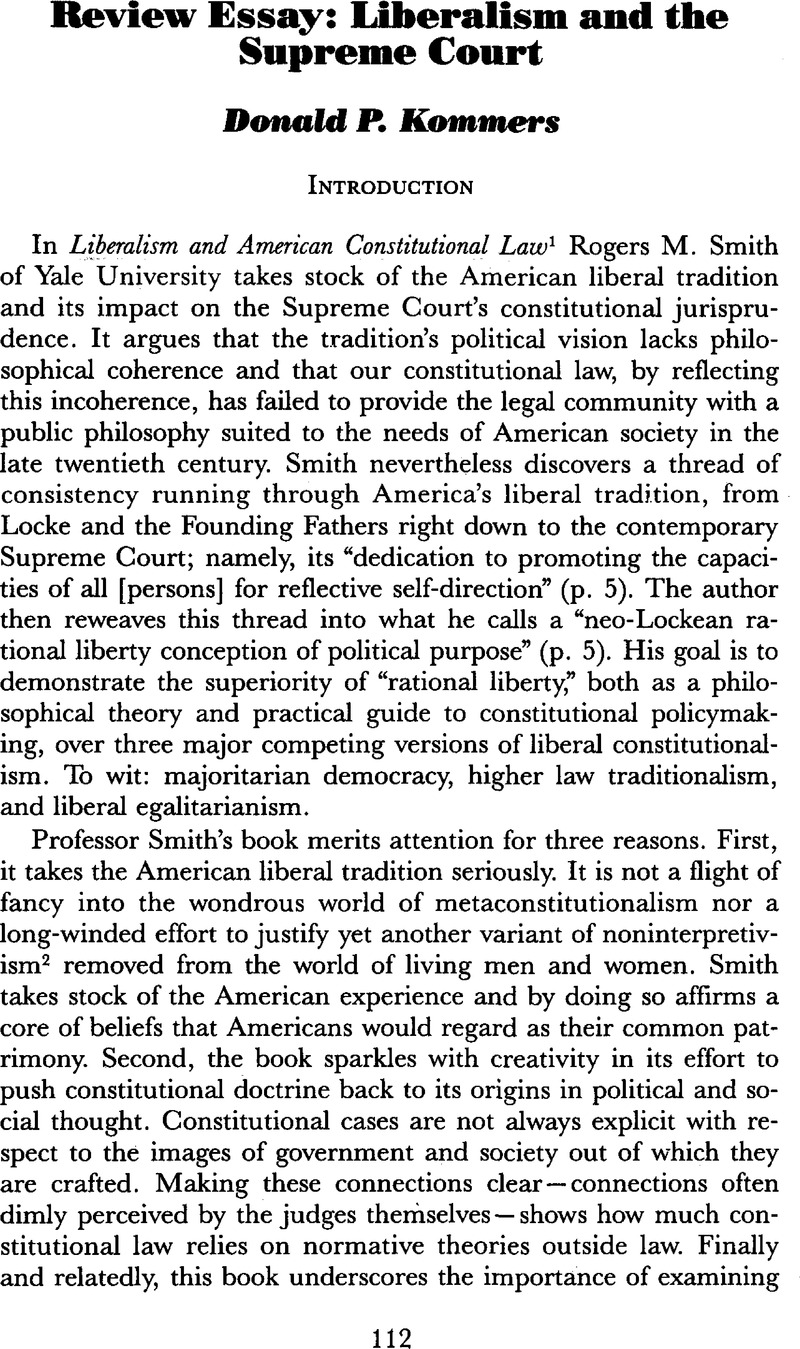No CrossRef data available.
Published online by Cambridge University Press: 05 August 2009

1 Smith, Rogers M., Liberalism and American Constitutional Law (Cambridge, MA: Harvard University Press, 1985).Google Scholar
2 The term describes an approach to constitutional interpretation. It refers to the judicial use of values found outside the text of the Constitution in the determination of a law's validity. See Kommers, Donald P., “The Supreme Court and the Constitution: The Continuing Debate on Judicial Review,” The Review of Politics 47 (1985): 113–28.CrossRefGoogle Scholar
3 Cohen overturned the conviction of a young man who appeared in a public building wearing a jacket with a coarse and vulgar slogan printed on it as an expression of his opposition to the military draft and the Vietnam war. He was arrested and convicted for “maliciously disturbing the peace … by offensive conduct.”
4 Rochin involved a conviction of a person on the basis of evidence forcibly extracted from his body.
5 Natural Law and Natural Rights, p. 88.Google Scholar
6 Under the New York Times rule a libel action may not be brought against a newspaper for uttering a falsehood about a government official unless the statement is made with actual malice or reckless disregard for the truth.
7 Ferguson upheld the constitutionality of a Kansas statute making it a misdemeanor for any person except a licensed lawyer to engage in the business of debt adjusting.
8 First Things: An Inquiry into the First Principles of Morals and Justice (Princeton, New Jersey: Princeton University Press), p. 22.Google Scholar